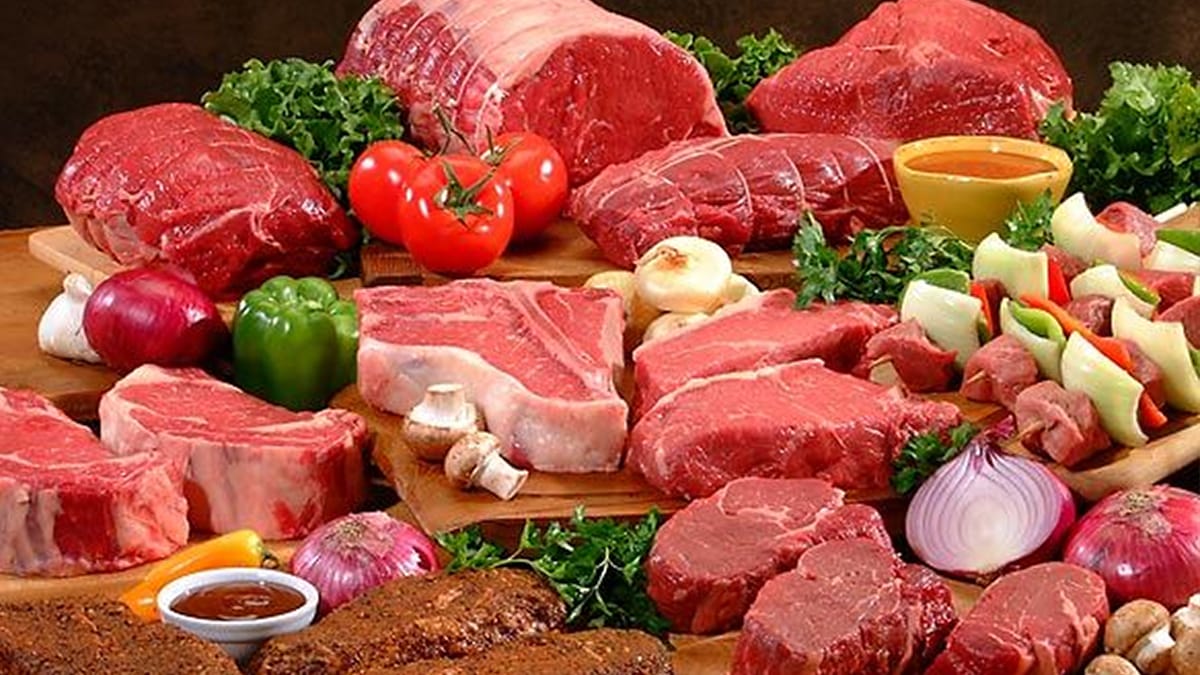Is Beef Protein Isolate Safe for Women? Complete Guide
If you are a woman considering beef protein isolate as a supplement, the quick answer is yes, beef protein isolate is generally safe for women when consumed in moderation and from a high-quality source. It provides a clean source of protein, low in fat and carbs, and is often free of common allergens like lactose. However, like any supplement, safety depends on dosage, individual health conditions, and product quality.
Is Beef Protein Isolate Safe for Women? Complete Guide
Beef protein isolate has become increasingly popular not only among bodybuilders but also among women who want to improve muscle tone, support weight management, and maintain overall wellness. In this guide, we will explore whether beef protein isolate is safe for women, its benefits, potential side effects, and how it compares to other protein sources.

Why Women Consider Beef Protein Isolate
Many women are looking for effective ways to meet their daily protein needs without relying heavily on dairy, soy, or plant-based powders. Beef protein isolate appeals to women because it is hypoallergenic, lactose-free, and contains all essential amino acids. Some also choose it for digestive comfort compared to whey or casein, which can sometimes cause bloating.
Nutritional Profile of Beef Protein Isolate
Beef protein isolate is derived from hydrolyzed beef, providing a concentrated source of protein that is usually around 90% pure protein by weight. It contains minimal fat, sugar, and carbohydrates, making it a lean option for women who are mindful of their calorie intake.
Key nutrients include:
High protein content with a complete amino acid profile
Naturally rich in collagen peptides that may support skin, hair, and joint health
No lactose, making it suitable for women with lactose intolerance
Low-fat and low-carb, suitable for weight management diets

Benefits of Beef Protein Isolate for Women
Supports Lean Muscle Development
Women who train regularly can benefit from beef protein isolate to preserve lean muscle mass. Research shows that adequate protein intake supports recovery and muscle repair after exercise.Helps With Weight Management
Protein increases satiety, meaning it helps women feel fuller for longer. This can prevent overeating and snacking, which are common struggles during weight management.Improves Skin, Hair, and Nails
Thanks to collagen peptides naturally present in beef protein isolate, many women notice healthier skin elasticity, stronger nails, and shinier hair.Gentle on Digestion
Unlike whey or casein, beef protein isolate is usually easier on the digestive system. Women who experience bloating with dairy-based powders may find beef protein isolate a cleaner alternative.Hormonal Balance and Energy Support
Adequate protein intake helps regulate hormones and supports stable energy throughout the day, which can be important for women juggling work, family, and fitness.
Is Beef Protein Isolate Safe for Women?
Yes, for most women beef protein isolate is safe. However, there are factors to consider:
Quality of the product: Choose grass-fed, hormone-free beef protein isolate to avoid unwanted additives.
Moderation: Excess protein intake may stress the kidneys over time if consumed excessively.
Underlying health conditions: Women with kidney or liver disease should consult a doctor before using protein supplements.
Pregnancy and breastfeeding: While protein is important, it’s best for pregnant and nursing women to consult a healthcare provider before using beef protein isolate.
Potential Side Effects
Although beef protein isolate is generally safe, some women may experience:
Mild digestive discomfort if consumed in very large amounts
Possible allergic reactions for those sensitive to beef proteins
Risk of consuming low-quality products with fillers or artificial ingredients
Scientific Evidence on Beef Protein Isolate
A study published in the Journal of the International Society of Sports Nutrition (2019) indicated that beef protein isolate can support muscle recovery and performance similarly to whey protein. Additionally, collagen peptides from beef have been studied for improving skin elasticity and joint health, areas many women are concerned about.
How to Use Beef Protein Isolate Safely
Stick to recommended servings (20–30 grams per serving, once or twice daily)
Mix with water, almond milk, or smoothies for better taste
Combine with a balanced diet rich in whole foods
Use post-workout for muscle recovery or as a meal replacement in moderation
Tips for Choosing the Right Beef Protein Isolate
Look for grass-fed and hormone-free sources
Avoid products with artificial sweeteners or fillers
Check third-party testing for purity
Choose a brand with transparent labeling
Compare flavor options, as some can taste stronger than whey
Women’s Real Experiences with Beef Protein Isolate
Many women athletes and fitness enthusiasts report positive results from using beef protein isolate. They highlight reduced bloating compared to whey, improved muscle recovery, and noticeable improvements in skin and hair health. Some women also use it during low-carb or paleo diets as a clean protein source.
Comparison with Other Proteins
Whey protein: Faster absorption but may cause bloating for lactose-intolerant women.
Casein protein: Slow-digesting, good for nighttime use, but often heavy on digestion.
Plant-based protein: Good for vegans, but may lack certain amino acids unless blended.
Beef protein isolate: Balanced, complete, lactose-free, with added collagen benefits.
Safety Precautions for Women
Avoid overdosing; more is not always better
Stay hydrated to support protein metabolism
Consult a healthcare provider if you have pre-existing health issues
Do not rely on supplements alone, combine with whole foods
Ensure consistent exercise and lifestyle balance
Frequently Asked Questions (FAQ)
Is beef protein isolate better than whey for women?
It depends on personal tolerance. Women who are lactose intolerant or experience bloating with whey may prefer beef protein isolate.
Can pregnant women take beef protein isolate?
It is best to consult with a healthcare provider. While protein is vital during pregnancy, supplements should be taken with medical guidance.
Does beef protein isolate help with weight loss?
Yes, it can support weight loss by increasing satiety and preserving lean muscle mass during calorie restriction.
Will beef protein isolate make women bulky?
No. Women generally do not produce enough testosterone to develop bulky muscles. Instead, beef protein isolate helps tone and strengthen muscles.
Can beef protein isolate improve skin health?
Yes, because of its natural collagen content, many women notice improvements in skin elasticity and hair strength.
Are there any risks to long-term use?
When consumed in moderation and with a balanced diet, there are no significant long-term risks for healthy women.
What are the best times to take beef protein isolate?
Post-workout for recovery, or as a mid-day snack/meal replacement when needed.
Recommended Product Types (No brand names)
Grass-fed beef protein isolate powder
Collagen-rich beef protein isolate
Allergen-free beef protein isolate
Keto-friendly beef protein isolate
Unflavored beef protein isolate for cooking or smoothies
Practical Tips for Women Using Beef Protein Isolate
Do not exceed two servings per day
Pair with regular strength training for best results
Rotate with other protein sources to keep diet balanced
Stay hydrated to support digestion and metabolism
Choose high-quality, tested products for safety
Final Thoughts: Safety Tips for Women Considering Beef Protein Isolate
Always prioritize quality over price when selecting protein powder
Stick to moderate doses and avoid overconsumption
Consult a doctor if you are pregnant, breastfeeding, or have medical conditions
Balance protein supplements with a whole-food diet
Use protein isolate as a tool, not a replacement for healthy eating
Monitor how your body responds and adjust accordingly
Combine supplementation with exercise and hydration for maximum results
Reference & Additional Reading
Inspired by studies and insights from:
www.health.harvard.edu
www.menshealth.com
www.healthline.com
www.womenshealthmag.com
www.ncbi.nlm.nih.gov
www.webmd.com
www.medlineplus.gov
www.tridenttech.edu
www.burnexia.com

